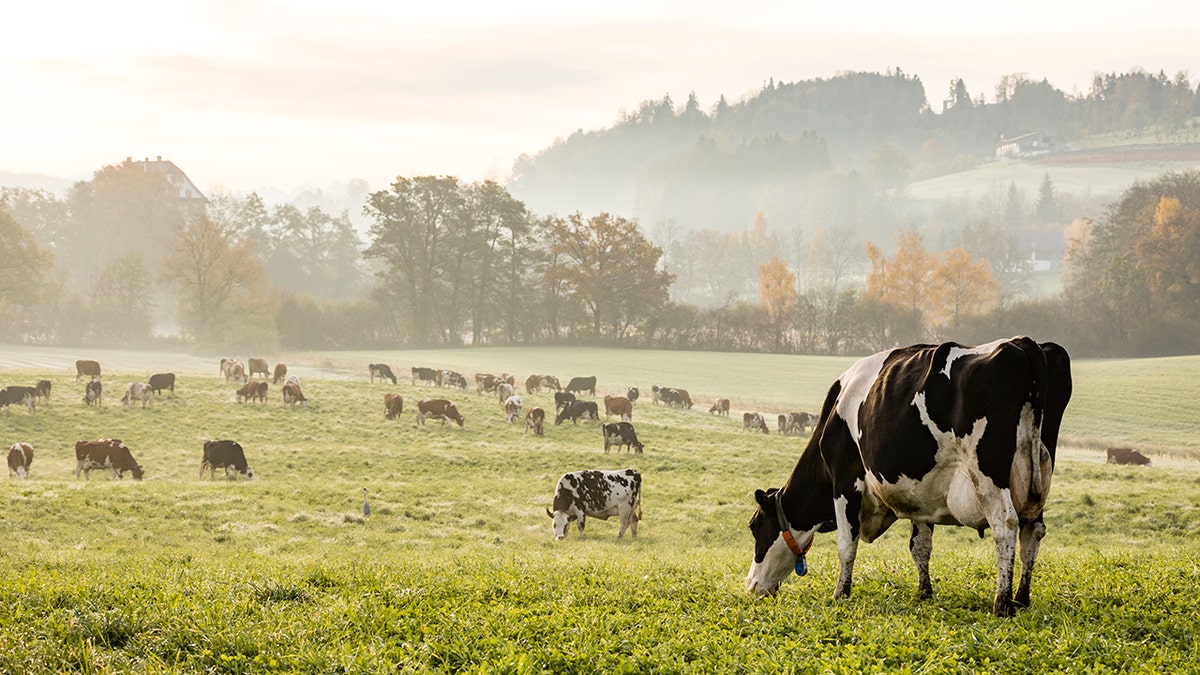
Scottish officials said the case does not pose a threat to humans. (iStock)
A case of mad cow disease was recently discovered on a farm in Scotland, the Scottish government confirmed Thursday.
The disease, also known as bovine spongiform encephalopathy (BSE), was confirmed on a farm in Aberdeenshire, located in the eastern part of the country. The isolated case does “does not represent a threat to human health,” government officials said in a statement, noting it did not enter the country’s food supply.
MICHIGAN OFFICIALS SAY LARGEMOUTH BASS VIRUS CONFIRMED IN LAKE
It is the first case of the disease found on a farm in the U.K. since 2015, Bloomberg reported.
“Following confirmation of a case of classical BSE in Aberdeenshire, I have activated the Scottish Government’s response plan to protect our valuable farming industry, including establishing a precautionary movement ban being placed on the farm,” Rural Economy Secretary Fergus Ewing said in a statement.
Though officials are not sure where the case of BSE on the Aberdeenshire farm originated from, “its detection is proof that our surveillance system is doing its job,” Sheila Voas, Scotland’s chief veterinary officer, added.
Mad cow disease is a “progressive neurological disorder of cattle that results from infection by an unusual transmissible agent called a prion,” according to the Center for Disease Control and Prevention (CDC). The fatal disease slowly affects the animal's brain, typically resulting in aggressiveness, nervousness and other behavioral changes. The disease also affects the animal’s coordination, causing trembling or stumbling, according to The Center for Food Security and Public Health at Iowa State University.
Scientists think the disease is caused when cows eat feed “contaminated with parts that came from another cow that was sick with BSE. The contaminated feed contains the abnormal prion, and a cow becomes infected with the abnormal prion when it eats the feed,” the U.S. Food & Drug Administration said.
PROTECTIONS RESTORED FOR GRIZZLY BEARS; HUNTS BLOCKED
People can be infected with a version of mad cow called variant Creutzfeldt-Jakob disease (vCJD) after eating meat or food made from cows that have been infected with BSE, according to the FDA. Cows and humans are similarly affected by the disease. Humans infected with vCJD die within a year, according to The Center for Food Security and Public Health, which added there is no cure for the disease.
Britain grappled with a massive outbreak throughout the 1990s when hundreds of thousands of cattle were diagnosed with BSE, resulting n a worldwide ban on beef exports from the U.K.
